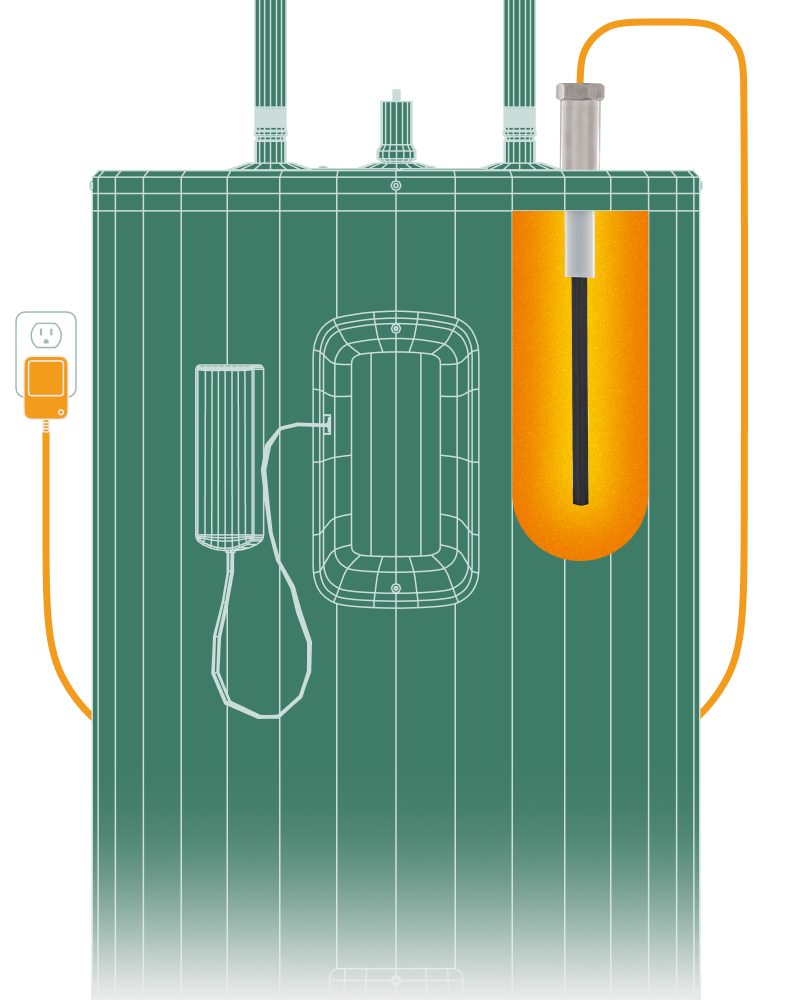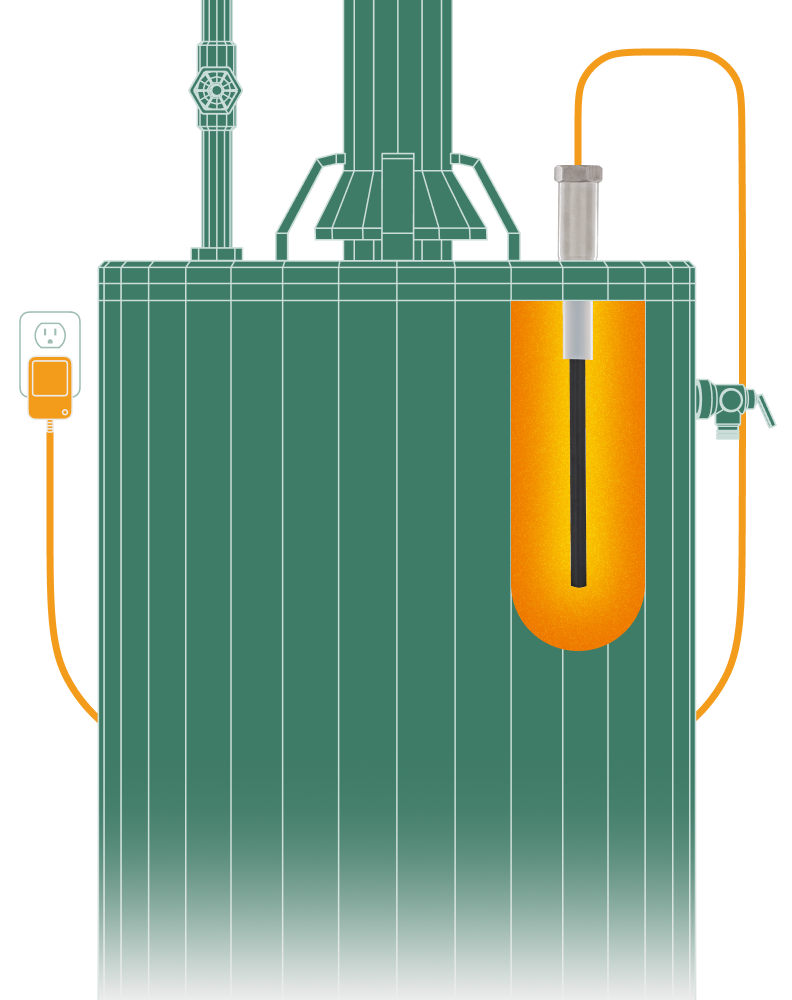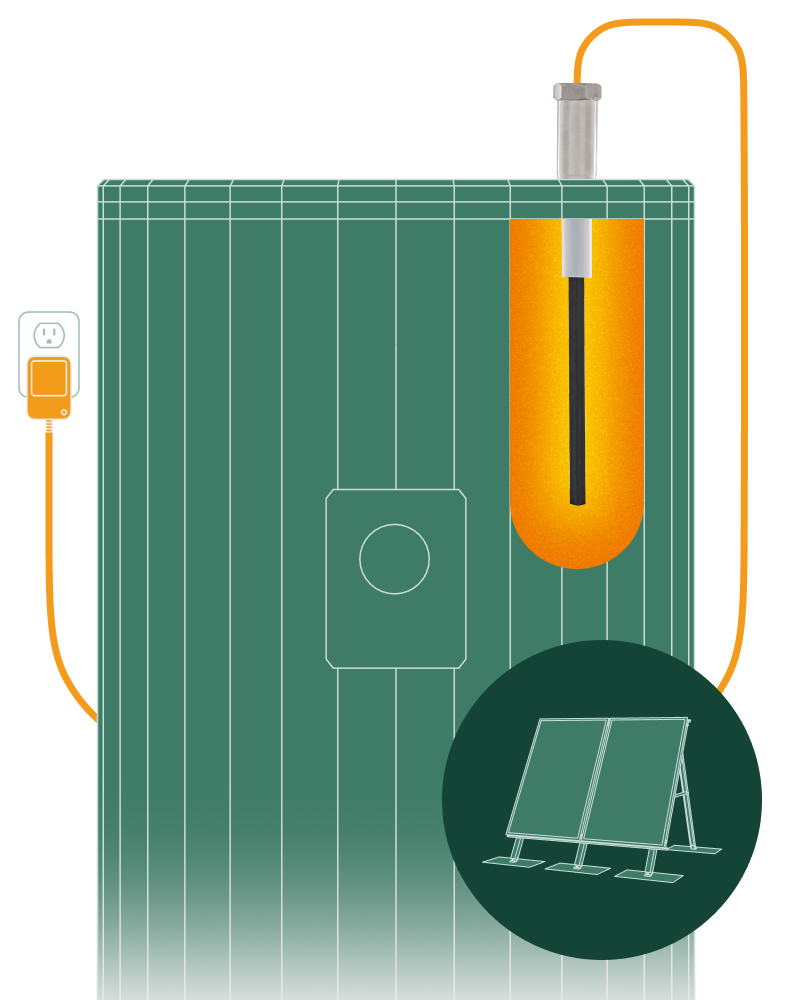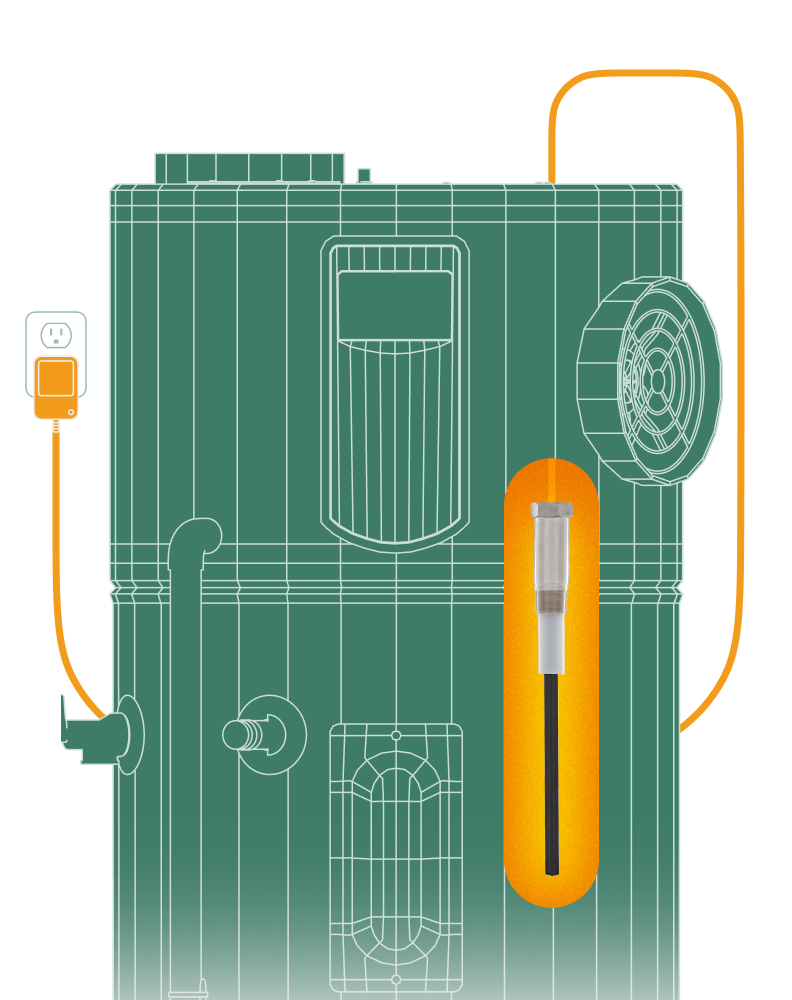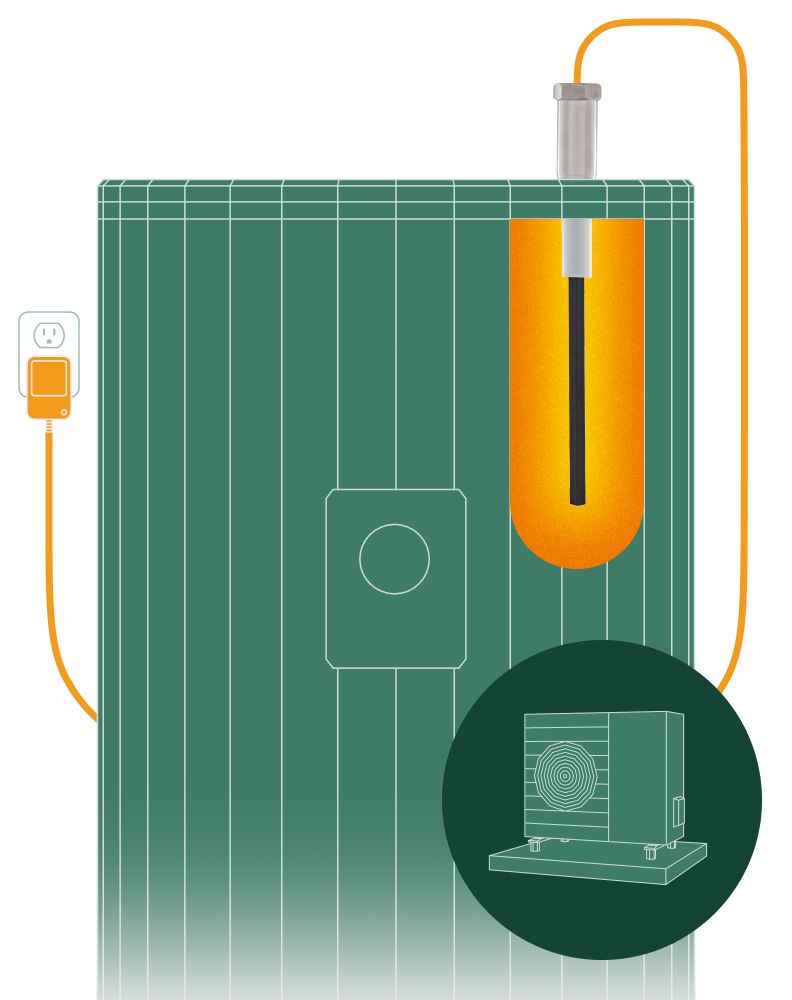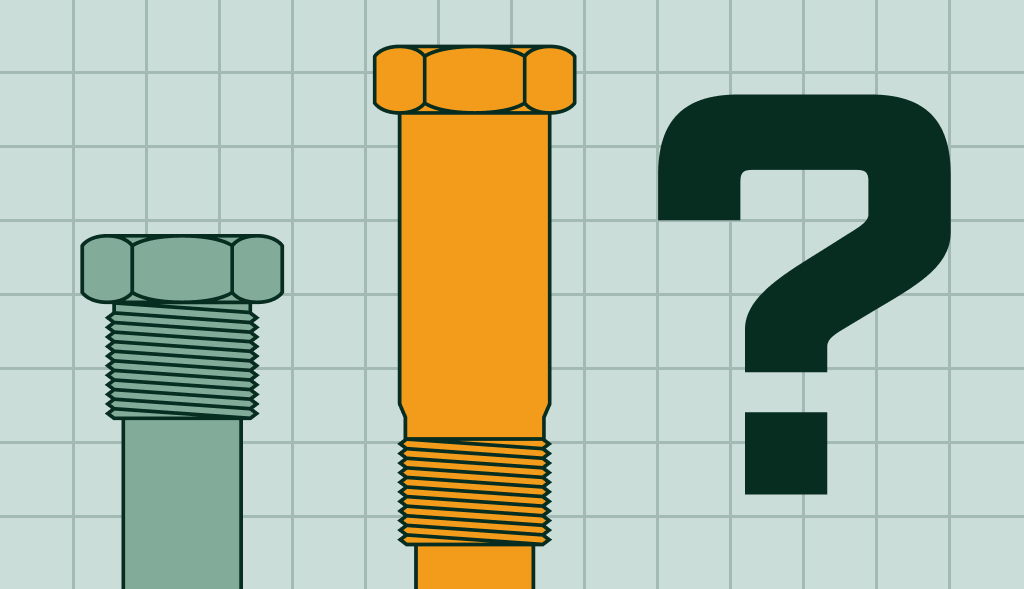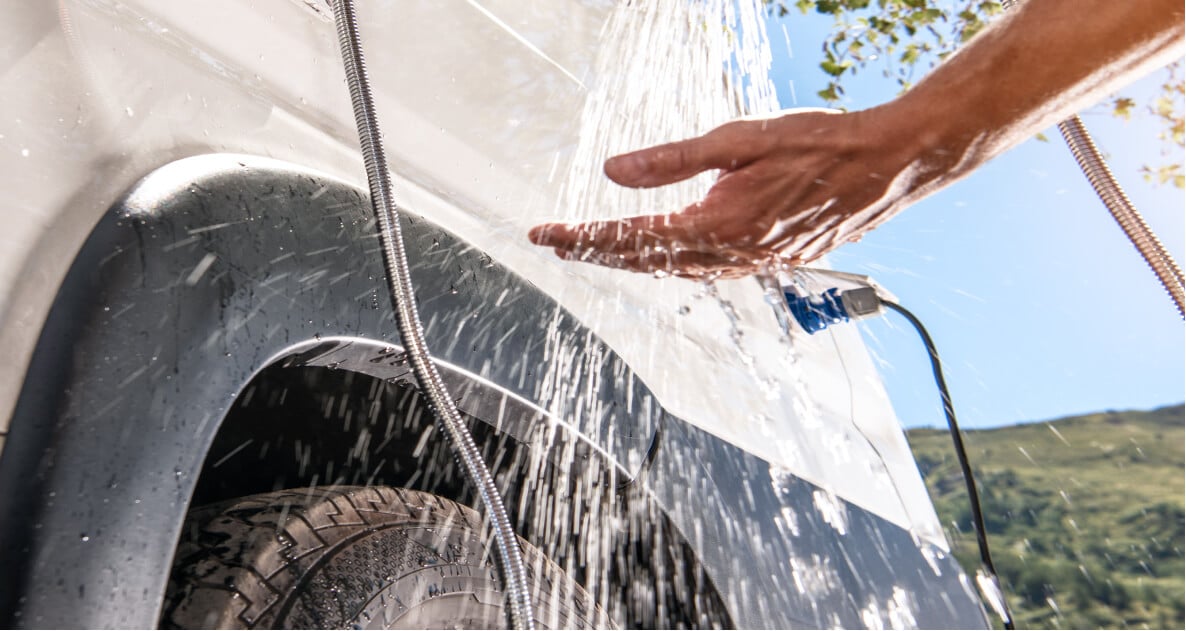Residential
Powered Anode Rod
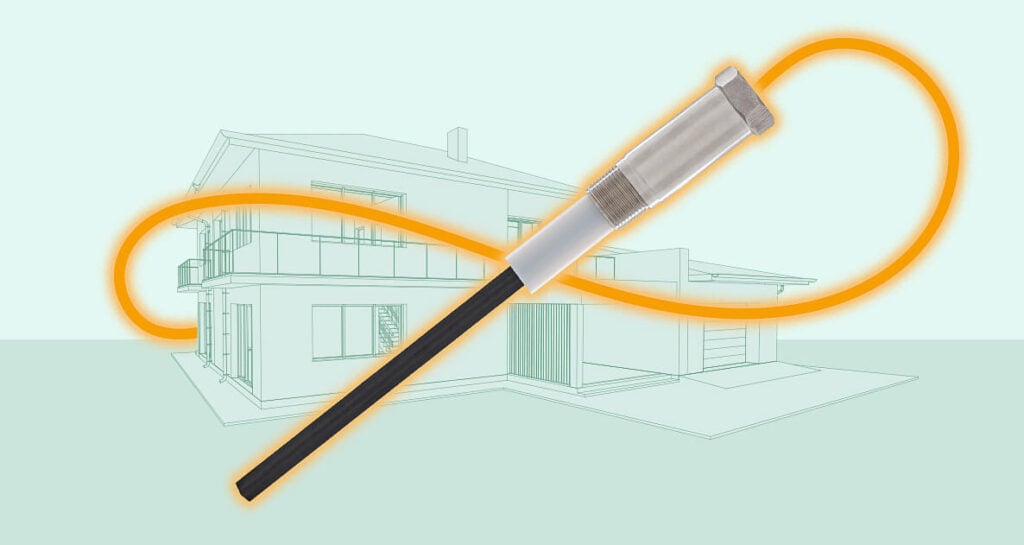
What is a Powered Anode Rod?
A powered anode rod is an innovative device to protect your water heater from corrosion. Unlike traditional sacrificial anode rods made of magnesium or aluminum, which gradually dissolve to prevent tank corrosion, powered anode rods use an electrical current to achieve the same purpose without degrading over time.
How Do Powered Anode Rods Work?
Powered anode rods operate based on simple electrical principles. Unlike traditional rods, which sacrifice themselves, they use a small electrical current to prevent corrosion. Titanium is commonly used in these rods due to its high corrosion resistance and ability to conduct electricity effectively.
Benefits of Powered Anode Rods
Stops Tank Corrosion
Our Corro-Protec anode combined with electrical current will provide added corrosion protection and increase the life of your hot water heater. Our system provides a layer of permanent corrosion protection on the internal welding seams and weak points of the tank. This technology is recognized by corrosion specialists and has been laboratory tested.
24-Hour Sulfur Smell Elimination
No matter what causes the rotten egg smell in your water, the Corro-Protec Powered Anode Rod can solve this problem in just a few hours. Once the system is operational, the energy projected by the system will prevent these unpleasant smells for years to come!
Reduces Limescale Accumulation
Limescale deposits cause significant costs for the rehabilitation of water pipes and heating installations and are also responsible for significant energy losses. The energy sent by the Corro-Protec imposed current anode is used to destabilize the calcium molecule found within the water, which has the effect of preventing the chemical reaction that normally creates calcite.
Automatically Adapts
The Corro-Protec automatically adapts to the type of water present in your tank in order to offer you optimal protection. No matter if your water comes from the city or a well, our products will be able to protect your tank!
One-Time Quick and Easy Installation
This anode will be the last you ever buy. We’ve included step-by-step instructions to make it easier to replace your old water heater hex-head anode with our Corro-Protec with easy-to-follow directions for beginners. If you need help during installation, you can call us or email us.
Lead-Free Certified
Thanks to our special titanium mixed metal oxide rod, the Corro-Protec anode is lead-free and received the gold seal by the Water Quality Association. We are proud to manufacture safe products both for your home and the environment. These Corro-Protec’s anode rods are tested and certified by WQA against SF/ANSI/CAN 372 : 96386, 96387 & 96388.
Why Powered Anode Rods Are Better
Standard
Magnesium Anode Rod
Deteriorates over time
The magnesium anode rod will sacrifice itself, deteriorate over time, to protect the water heater.
Anode will corrode
Since corrosion always attacks weaker metals first, the magnesium anode will corrode until it is about 50% consumed. After that, the tank will start to rust and will last a couple years.
Reduces lifespan
Making water more aggressive, water softeners also reduce the life of the sacrificial anode rod.
Corro-Protec
Powered Anode Rod
Better for Your Hot Water Tank
These rods prevent the “stink rod” effect, ensuring your hot water remains odor-free. This is especially beneficial for households using well water, where the interaction between water and magnesium rods can cause unpleasant “rotten egg” smells.
Enhanced Durability
Powered anode rods improve the lifespan of your water heater. They provide robust and long-lasting protection against corrosion and limescale buildup.
Longevity and Maintenance
Powered anode rods are designed to be long-lasting. They do not corrode like traditional rods, requiring almost no maintenance. To ensure optimal performance, check the electrical connections and inspect the rod periodically.
Sacrificial Anode Rods
Traditional sacrificial anode rods are made of magnesium or aluminum and designed to corrode over time, protecting the water heater tank from rust. However, they have several drawbacks:
– Frequent Replacement: Sacrificial anode rods need to be checked and replaced periodically, which can be inconvenient and costly. As the anode rod depletes, it becomes less efficient at protecting the hot water tank from corrosion and bacteria.
– Odor Issues: Magnesium anode rods can react with certain water types, producing an unpleasant sulfur smell. They also do not eliminate the smell of sulfur, which causes bacteria to be found in the water.
– Residue: As the sacrificial rod corrodes, it can leave minerals and sediment at the bottom of the water tank, potentially causing issues in the future.
Frequently Asked Questions
Yes, powered anode rods are highly effective in preventing corrosion in water heaters. They provide continuous protection without the need for frequent replacement.
An electric anode rod uses a small electrical current to prevent corrosion, unlike traditional rods that corrode over time. This method ensures consistent and long-lasting protection.
Powered anode rods rely on an electrical current to protect the tank, eliminating the need for a large sacrificial metal rod. This allows them to be more compact.
Powered anode rods offer superior corrosion protection, eliminate odor issues, and require less maintenance than traditional sacrificial anode rods.
This lifespan often extends over a decade, with some high-quality brands like Corro-Protec offering powered anode rods designed to last more than 20 years. However, the lifespan can vary based on water quality and usage patterns.
Power consumption varies depending on water hardness and other factors, but on average, a powered anode rod consumes about 10 kWh per year.
Corrosion is a chemical reaction when metal reacts with water and oxygen, leading to rust and deterioration. In water heaters, this can cause leaks and damage over time.
Powered anode rods are designed to fit various water heater brands and types.
Installing a powered anode rod is highly recommended, even if you have a water softener. The water softener generally makes water more aggressive to hot water tanks, which reduces the life of your tank and creates a more conducive environment for developing sulfur-reducing bacteria that produce the rotten egg smell in hot water.
Need Assistance?
Our technical support team created great step-by-step installation guides. They are also ready to answer all your questions and help you solve any problems you are experiencing.
Blog
Effective Strategies to Remove Sulfur Smell from Your Hot Water Heater
Many homeowners face the unpleasant sulfur smell in hot water. This odor, often resembling rotten eggs, can make using hot water for daily tasks unpleasant. […]
Why Your Water Heater is Leaking and How to Fix It
In the US, water leaks in the average home waste 10,000 gallons per year. Worse, 10% of US households have plumbing issues so bad, they waste 32,850 […]
Powered Anode Rod
Corro-Protec’s anode rod for water heaters fits any residential tank on the market. Get the most durable and versatile anode available.
What is an Anode Rod?
You might have heard about an anode rod if you have a hot water heater. But what exactly is it, and why is it important? […]
Powered Anode Rod for RV Water Heaters
Our RV powered anode rod fits all Suburban RV water heaters. Enjoy the power of our permanent corrosion protection and more.
